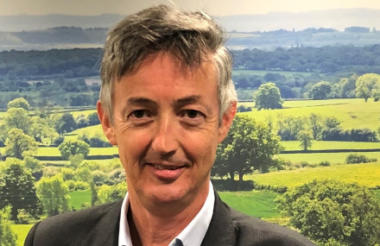At CPRE, the countryside charity (formerly the Campaign to Protect Rural England), we have just launched an exciting new vision and strategy as we draw ever closer to our centenary in 2026. Because we want to make sure we got this absolutely right, this comes at the end of a thorough planning and consultation process.
Rebalancing the focus of a 93 year old charity, including the way we refer to ourselves, is not without its challenges. I wanted to share six key learnings because what we’ve experienced could well apply to any charity leadership team planning a transformation.
Respect and learn from the founders
Going back to the original principles which inspired our countryside pioneers back in the 1920s has not only given us inspiration for our new purpose and brand, but also kept us true to our charitable objectives and helped us clear away some of the noise which accumulates over the years. Sometimes we find that what people think is a charity’s ‘core business’ is actually not what the founders intended but has built up over time!
Listening to new audiences
Our changes have been driven by the people who share our passion for the countryside, and knew it was under threat, but didn’t know about CPRE or how to engage with us. If you want new supporters, you need to identify who they might be and listen to them, so…
Consult, consult, consult!
Like many charities, CPRE has multiple stakeholders across many interest groups, nationally and locally. We learnt much from engaging them early on in developing the thinking on our purpose, strategy and brand. We needed to take people with us so that the changes we want to make can really work. But we also needed to reach a point where we could say to those who were never going to change: ‘this has now been agreed and we’re going to move forward’.
Bathwater not babies
We’ve always had to adapt to earn the support of new generations, so we understand the need to change to attract more - and a much wider range of - people to our cause. But we also wanted to retain what had made CPRE great. When it came to the brand – how the public recognise us – we also kept a bit of what had gone before so that people could see what had changed. ‘The countryside charity’ part of our name is new, but rather than a starting a whole new story, this is simply the next chapter.
Focus on the beneficiaries
A huge number of people, many from disadvantaged backgrounds, are losing out because the countryside near where they live is being degraded or built over or is not accessible without a car. If we look after the countryside, it will look after us. We need to give people the opportunity to access the countryside, encouraging them to care and to be part of this movement, which will in turn help them in the long run. So for our charity, the beneficiaries of the work we do are part of the solution.
Connect
None of us work in isolation and at CPRE we realise the job we have to do goes way beyond the resources we can call on by ourselves. We involved our existing and potential partners from a wide range of sectors in our own strategic review, which made for a much more focused and realistic outcome and laid the foundations for some really high-impact partnerships to come.
Crispin Truman OBE is the chief executive of CPRE, the countryside charity.









